rhinoceros
by Eugène Ionesco
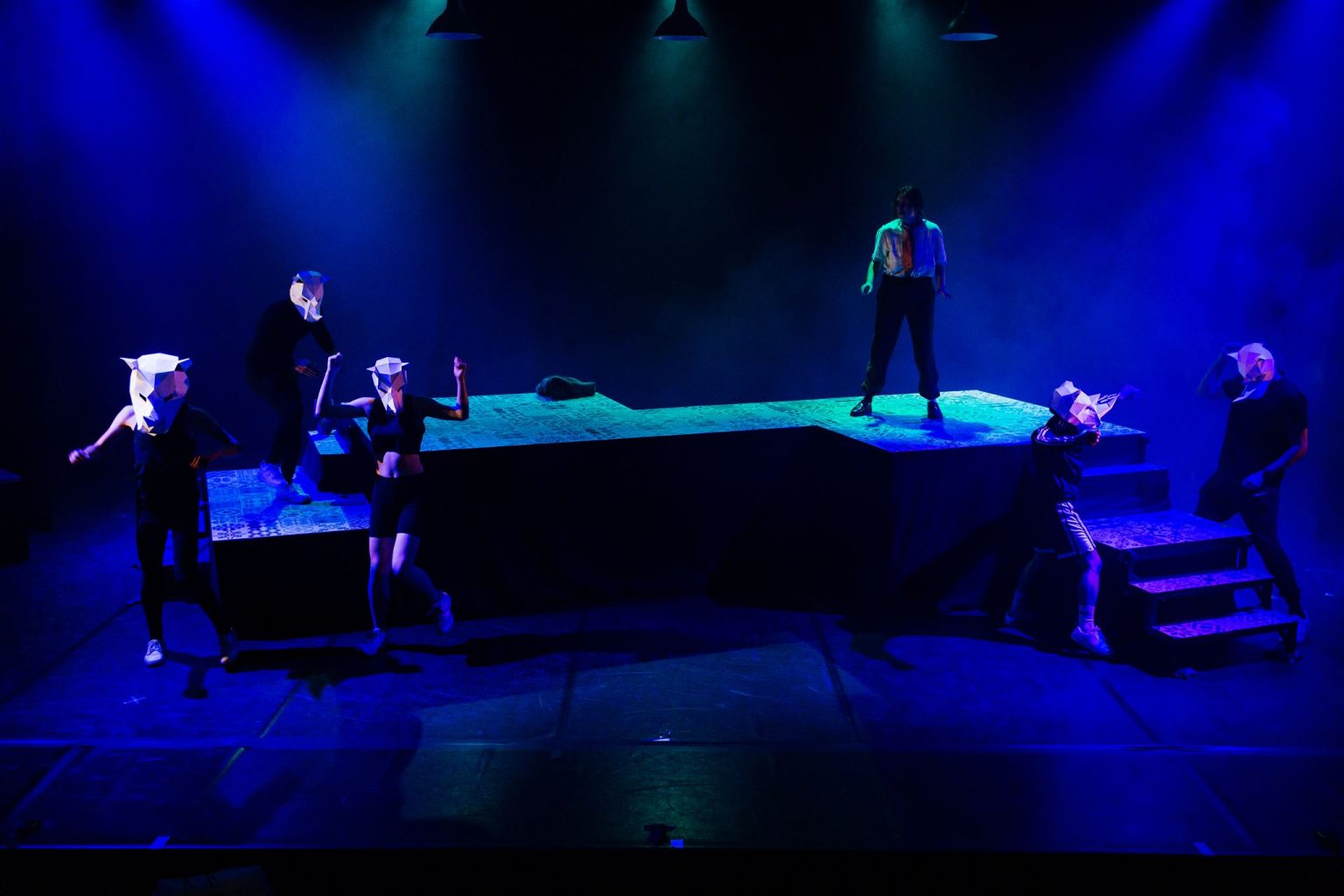
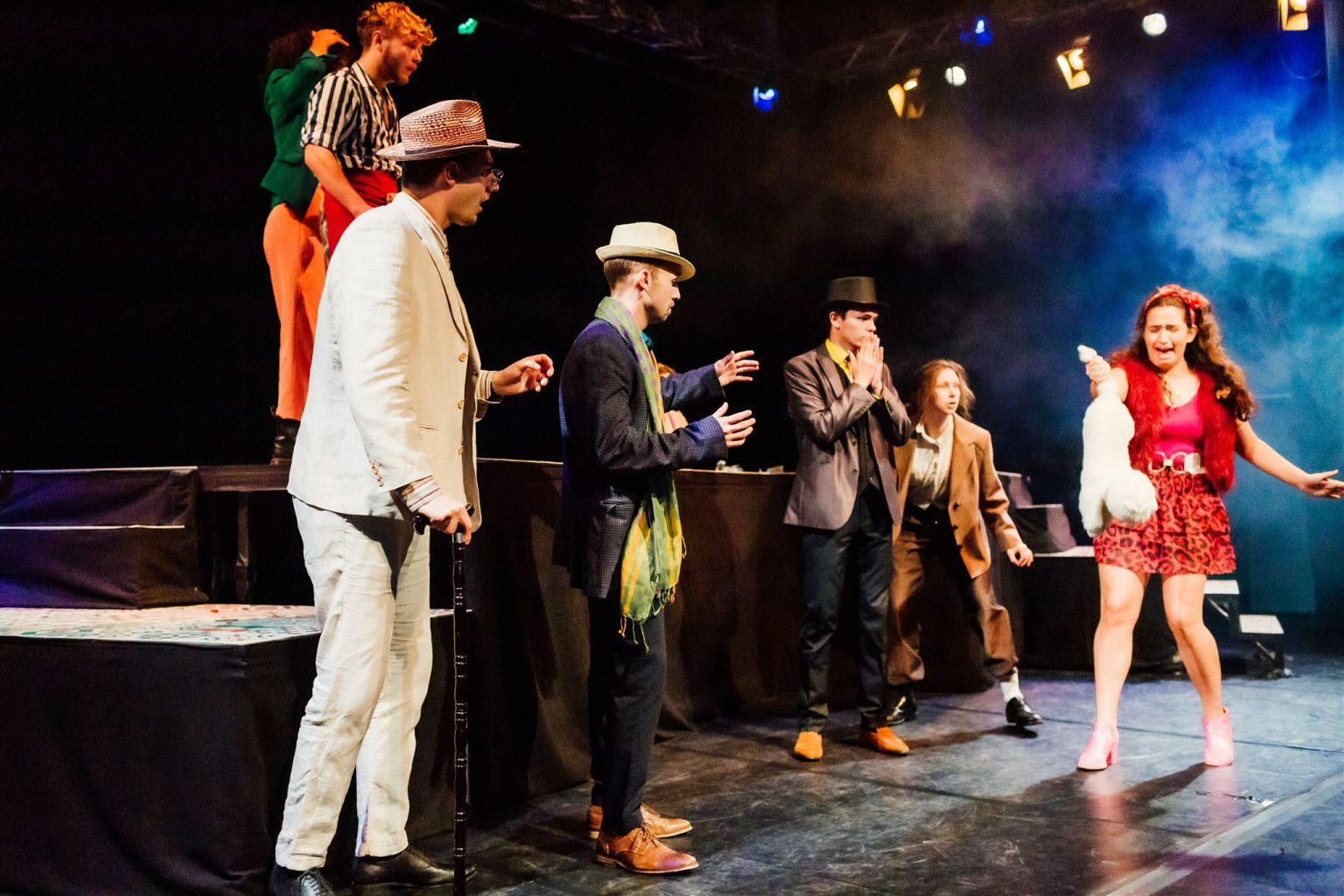
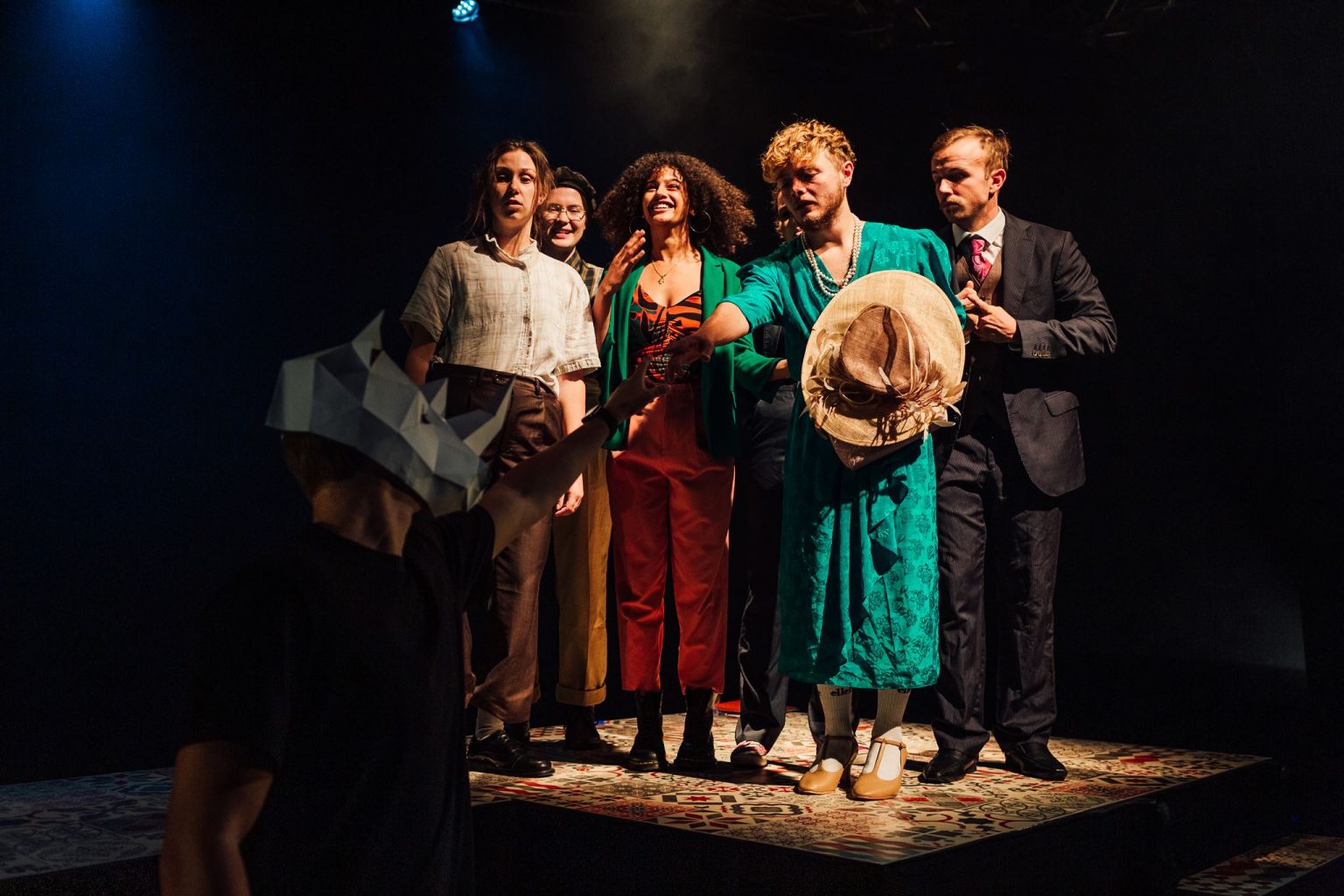
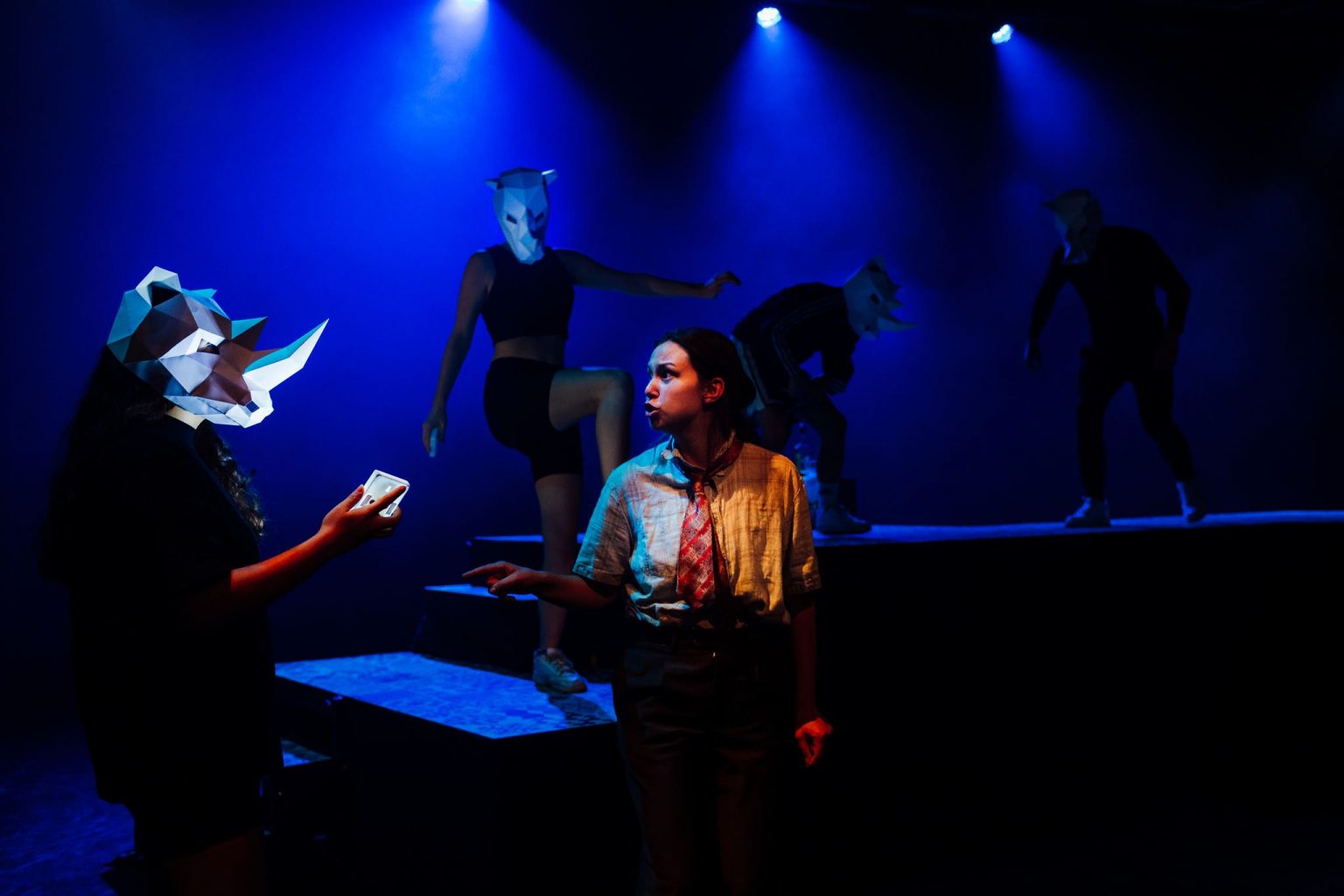
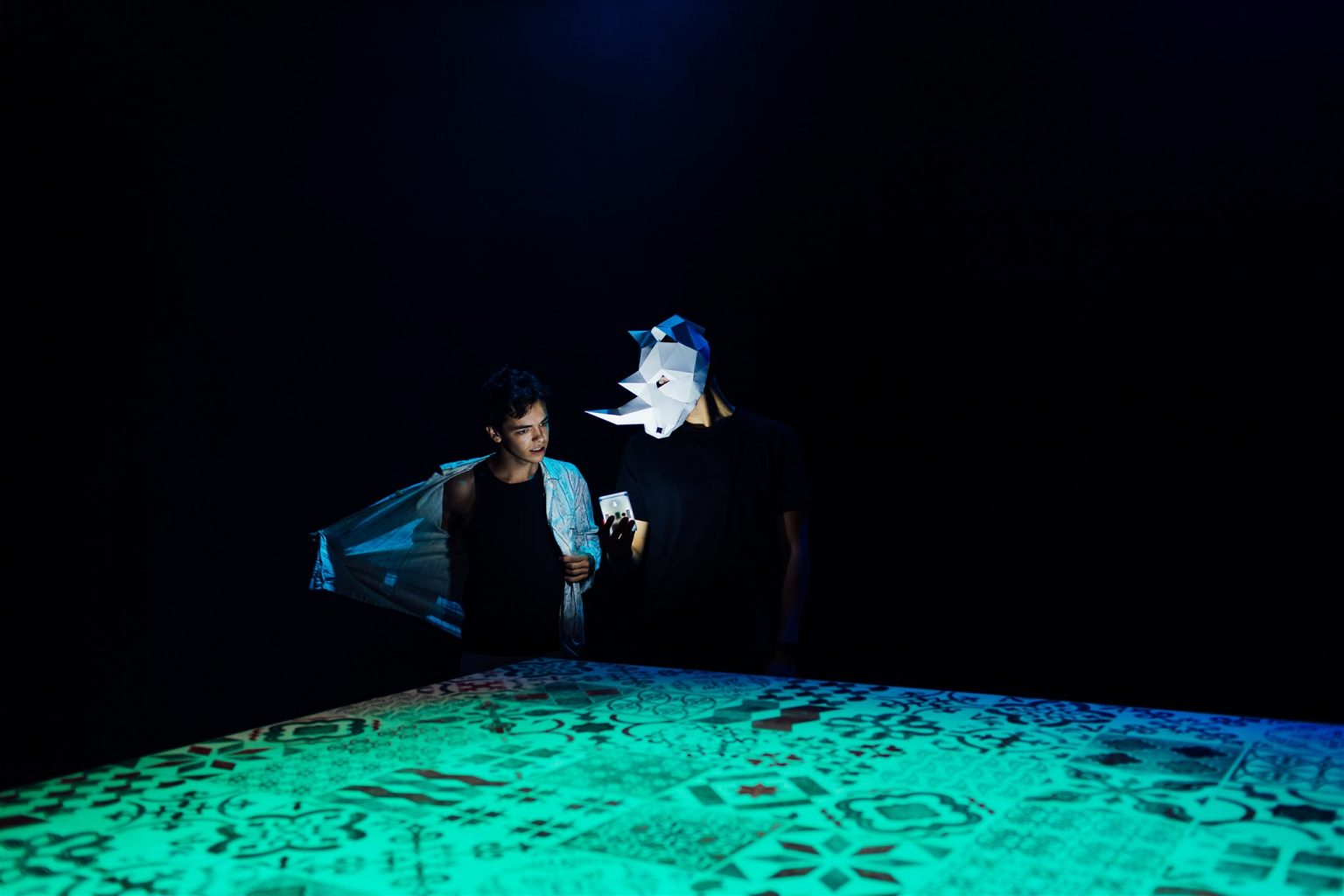

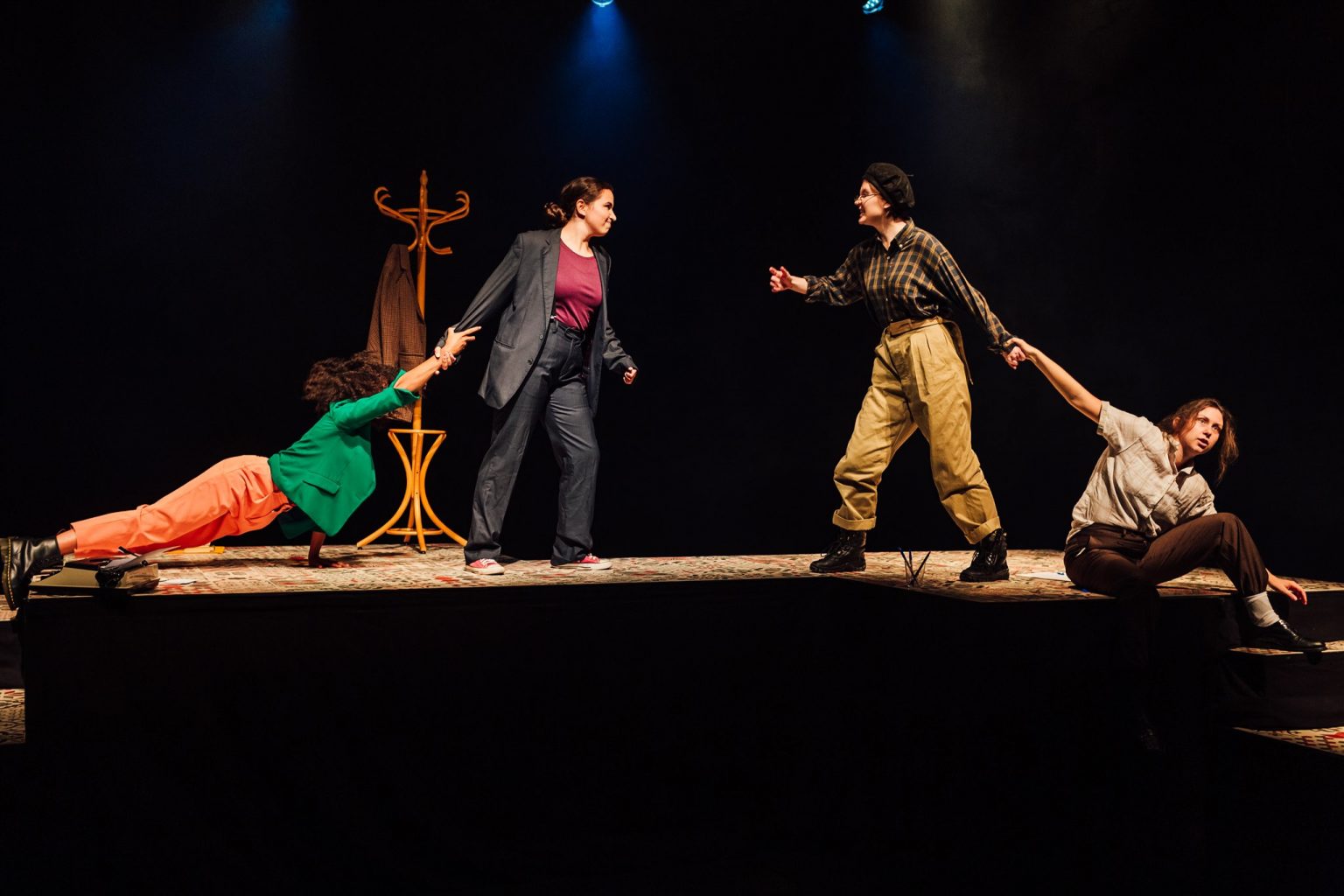
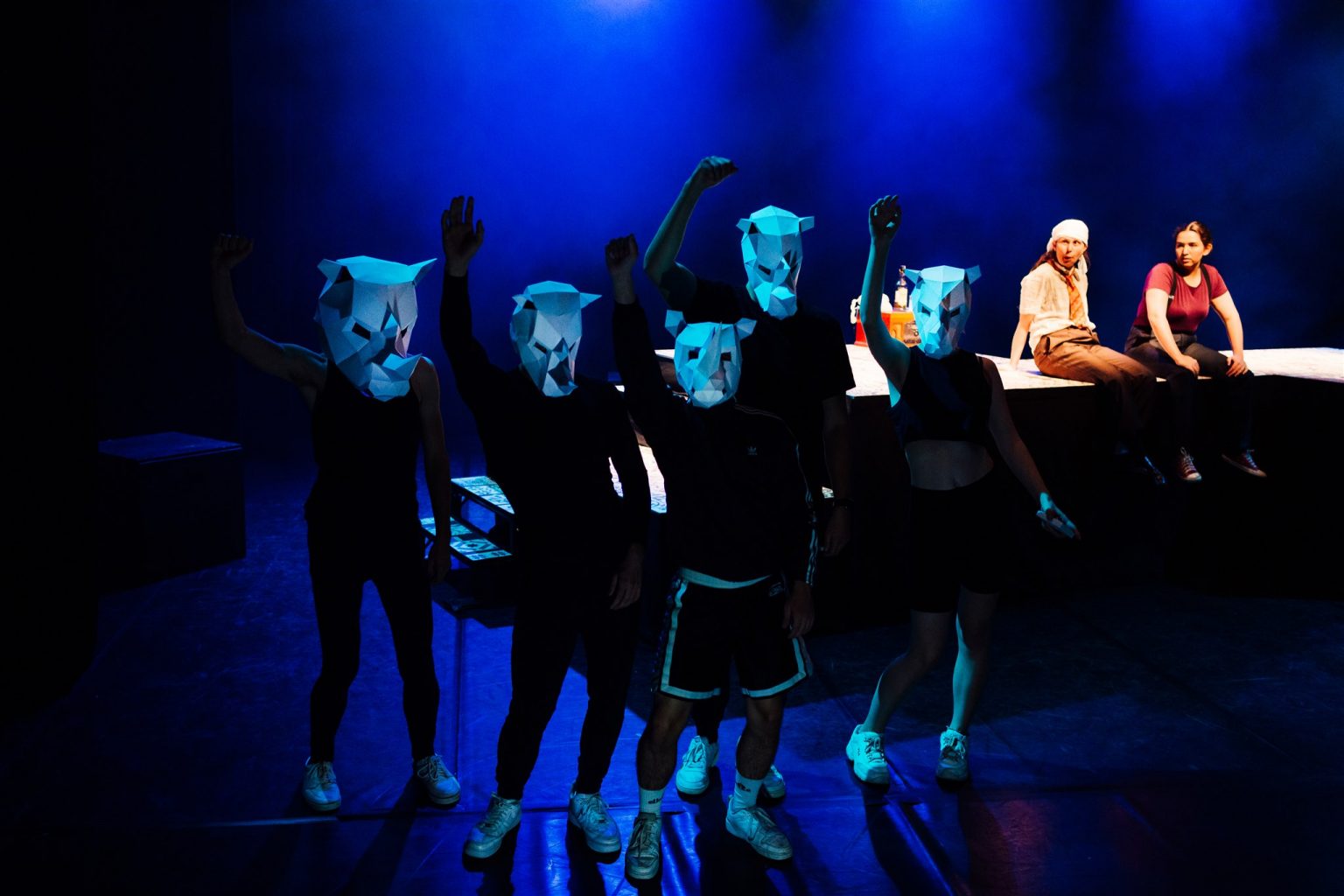
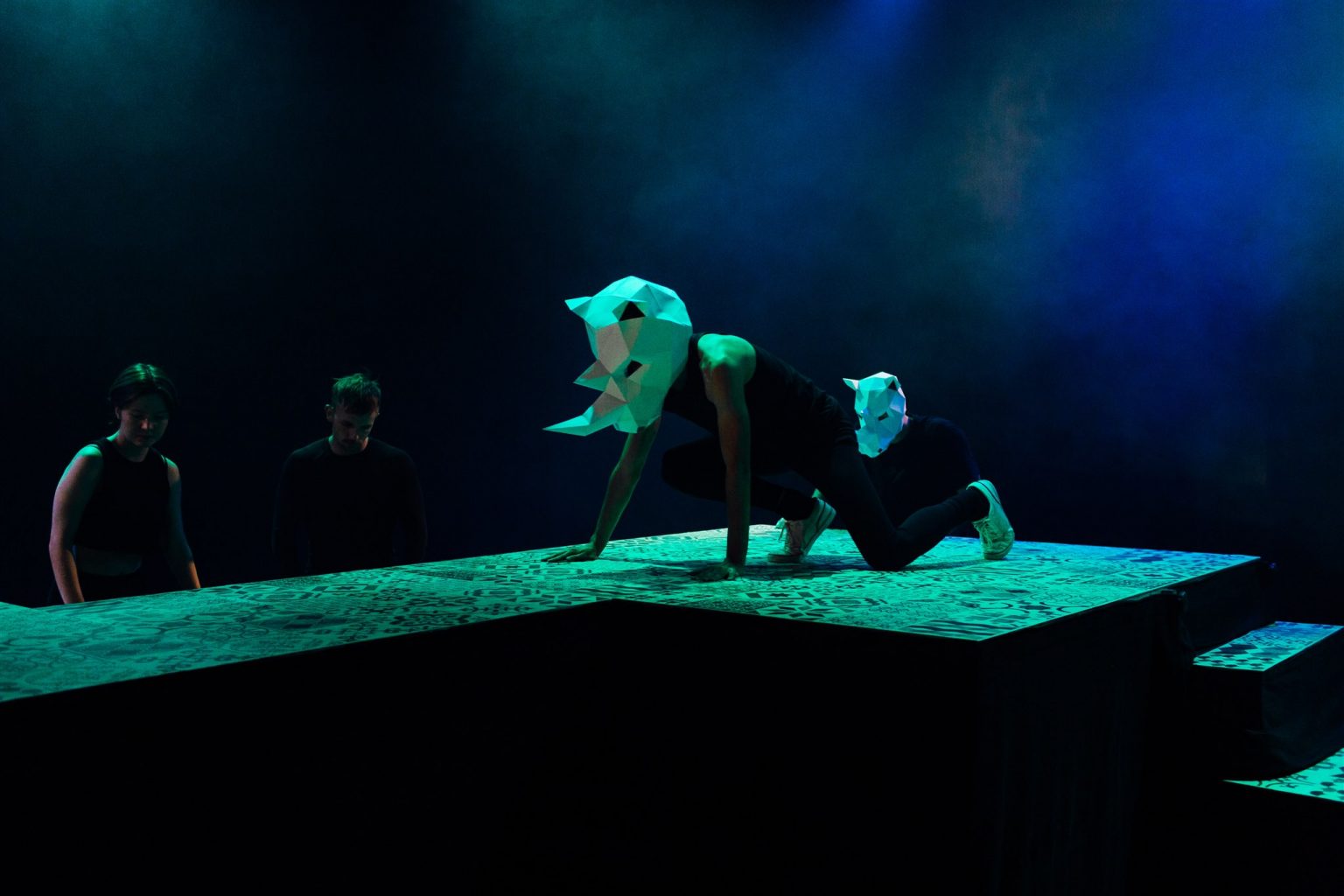
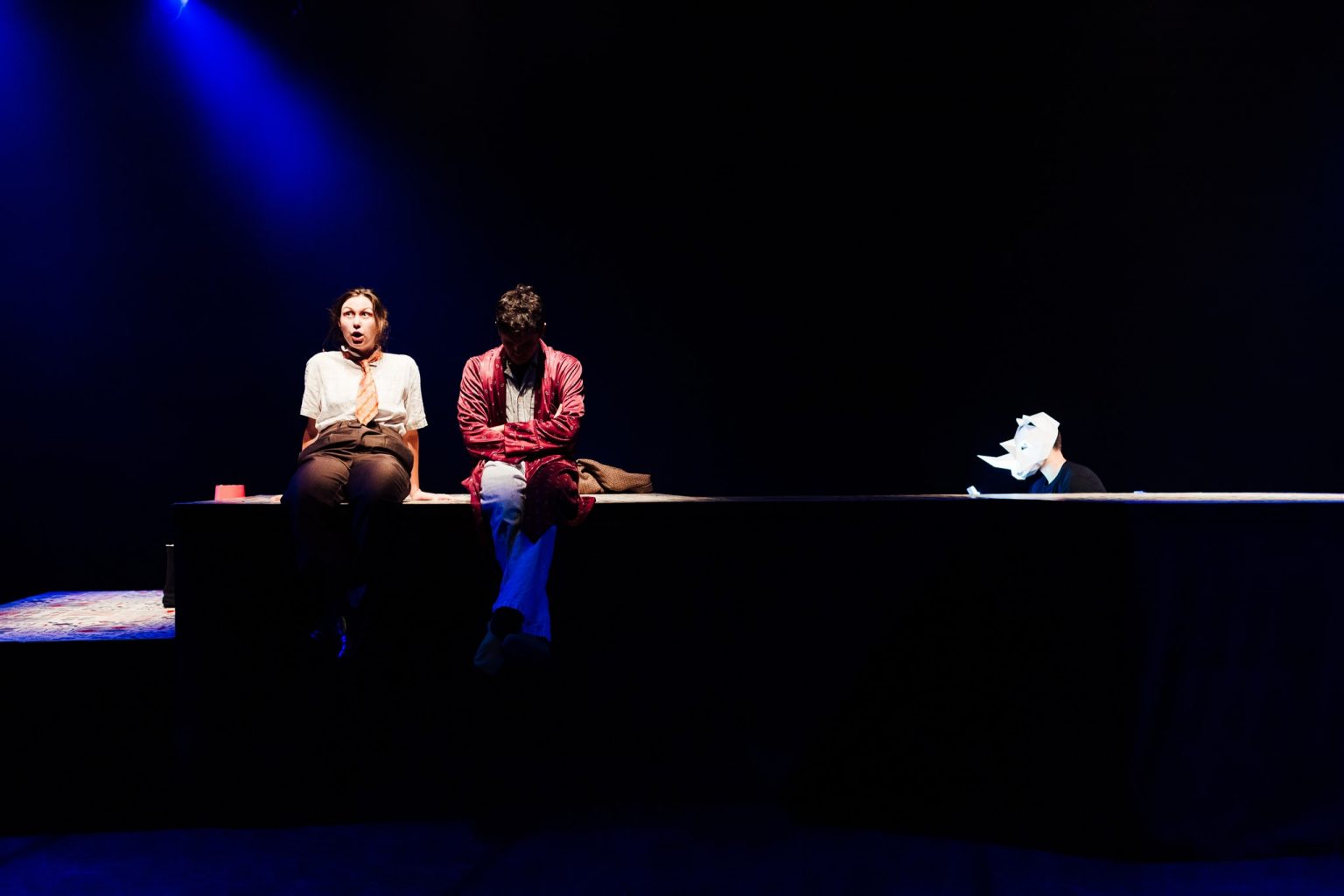
An Institute of the Arts Barcelona production.
Anna Berg Hansted: Berenger
Felix Borreguero Boleis: Jean
Layla Chege: Daisy
Madalena Ghira: Dudard / Housewife
Sara Paulamäki: Botard / Waitress
Kyle Ballantyne: Logician / Mr. Papillon
Matt Posada: Old Gentleman / Fireman / Little Old Man’s Wife
Corey-Phillip Rylands: Grocer / Mrs. Boeuf / Little Old Man
Directed by Jordi Casado i Olivas
Designed by Carlota Masvidal
Light Design by Amadeu Solernou
Sound Design by Neus Soler Ferret
Pictures by Jo Kemp Photography
Production Support Valentina Ricci
Producer Emma Grooves-Raines
DIRECTOR’S NOTES
When Ionesco wrote Rhinoceros in 1959, he imagined a huge monster that was both individual and collective, theoretical and practical, and hilariously absurd but profoundly terrifying. No one expected Paris to get occupied by the Nazis. It was an impossible thought at the time. A hysterical nightmare. Just like Trump getting to be POTUS, or Brexit, or a rhinoceros running around a little village in a remote part of France. No one saw it coming. Experts, cultured people and politicians didn’t think it possible, and yet, here we are. Rhinoceroses keep surprising us time after time, and we insist on keeping our eyes shut, pretending they are just an absurd construct in an absurdist theater play.
Ionesco’s rhinoceros is green skinned, big, ruthless, savage, and smelled like Nazism. It speaks of a time where everyone around him submitted to Nazism (either willingly or for other reasons) and gave up their humanity. But this was written more than 50 years ago, so when we started rehearsing this play we couldn’t help but ask ourselves: “What does a rhinoceros look like nowadays?”, “Is it still green skinned?”, “How does one transform into it?”, “How do we as humankind renounce our humanity?”.
Rhinoceroses may look different now than then, they might have white faces and shoes, and they might use social media and catchy dances to propagate, but Berenger’s story is as relevant now as it was then. Berenger doesn’t know how to be human, but he doesn’t know how to be anything else either, and that’s what this play is about.
This is a play about staying human.
Jordi Casado i Olivas